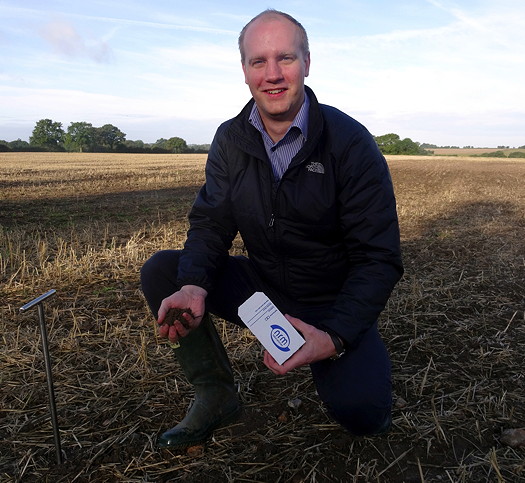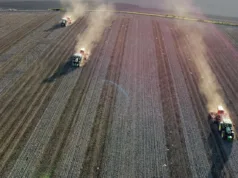NRM Laboratories has launched an exciting new service to provide an assessment of the health of agricultural soils.
“The new Soil Health Service has been developed to provide farmers and agronomists with the information they need to manage soil resources for optimum crop performance,” the company’s Duncan Rose said. “It will be a useful tool for both conventional and organic farming systems.”
Soil is the basic raw material of farming and fundamental to agricultural productivity. Traditionally soil health has been seen largely as a function of biological activity within the soil, but the physical and chemical properties of soil also impact on its fertility and health. By integrating the key physical, chemical and biological aspects of soils, NRM has been able to develop a unique scientific platform to measure, monitor and manage soil health.
The new Soil Health package comprises a suite of laboratory tests that assess all the key parameters. It integrates measurements of soil nutrient status with soil texture, organic matter and biological activity to produce a Soil Health Index.
“The foundation for the Soil Health Index is the rate of evolution of CO2. This relates directly to soil microbial activity and can be used to estimate nitrogen mineralisation rates,” MrRose said. “Adjustments, however, need to be made to the CO2 evolution index to take into account biological activity limiting factors such as soil nutrients, soil texture, soil organic matter and pH. For example, soil texture affects microbial activity by regulating temperature, air and water exchange rates. For sandy soils an adjustment downwards is required, whereas for soils with a high clay content an increase will be needed.”

The new Soil Health package includes:
- Soil pH – this influences nutrient interactions, root development and microbial population dynamics.
- Available phosphorus – major impact on root development, root exudate formation and plant-microbe interactions. Essential for biological nitrogen fixation.
- Available potassium – related to nitrogen uptake, carbohydrate formation and bulk plant development. Low K status during times of stress can have a major impact on the composition and amount of exudate production. This can therefore impact on microbial activity around the root system.
- Available magnesium – central to nitrogen and potassium uptake, photosynthesis and can influence the composition of root exudate production.
- Soil particle size distribution – relative percentage of sand, silt and clay, soil textural classification is central to RB209 fertiliser recommendations and soil erosion risk assessment. Soil texture influences nutrient and moisture retention, microbial population dynamics and carbon sequestration.
- Soil organic matter – an essential component of stable soil aggregates, influencing nutrient and water retention, soil structure and plant-microbe interactions.
- Respiration rate – CO2 evolution is directly related to soil respiration, a general measure of biological activity, indicating microbial biomass, carbon sequestration and nitrogen mineralisation rates.
Against the background of accelerating global demand for food, finite agricultural land resource and the need to make positive improvements to the environmental impact of farming, agriculture must increase productivity. This requires more output from each unit of input. An appreciation of soil health and how it can be optimised is a fundamental step towards achieving this goal.
This package has been created to bridge the gap between standard physical/chemical soil analysis and comprehensive microbial analysis at the same time providing vital information on how the soil components are interacting.
To accompany the new Soil Health Service, NRM has published a comprehensive 24-page, A4 Soil Health Handbook that will provide customers with expert guidance on how to interpret soil health test results.
For more information visit: www.nrm.uk.com.










